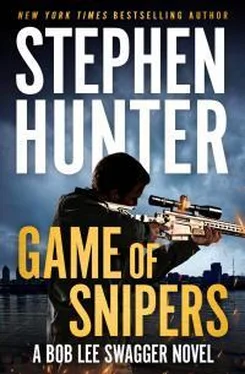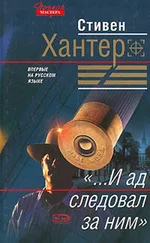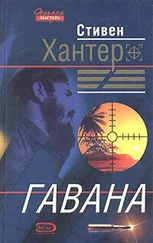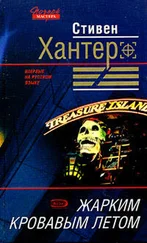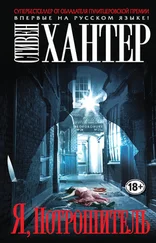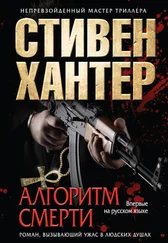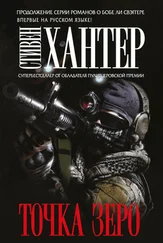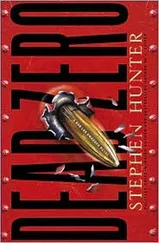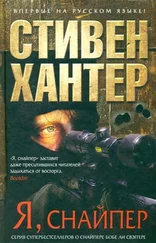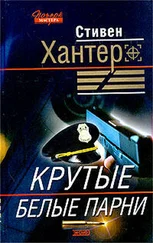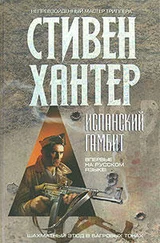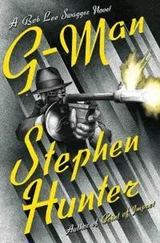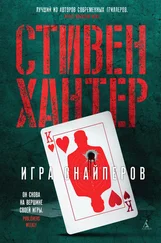“That would be the argument I’d make, yes. No peace in it, no justice either. The chances are also that that boy never made it out of Baghdad himself. There was a lot of killing there in 2003, if memory serves.”
“There was.”
“If I recall correctly, for a while they had a very effective sniper program, and our kids died at a significant rate. Some folks went over there, analyzed the data, made charts, and figured out where, when, and how these shots were being made, and designed new strategies. So our dying went way down, theirs went way up. I guess Tom went down before the experts figured it out.”
“That’s it exactly.”
“Shouldn’t you be mad at the Marine Corps for being so slow to get it figured out? Or at the president and the long line of men in gray suits who put your son where he was when he got taken? What about the newspapers that wrote editorials in support? That might be a way to channel your rage. Another way might be to see that those that died, in fact died for something, even if it was only to become part of a countersniper database, which ultimately saved a lot of mothers from feeling what Tom’s mom feels. It meant something. It was a sacrifice not for nothing but for the betterment of all those who came after.”
“I suppose I could feel that. But I don’t. There’s that ‘but’ again.”
“All right. Tell me about this particular ‘but.’”
“But it wasn’t a part of the war. But it wasn’t another kid who wanted to be at the mall. But it wasn’t even an Iraqi. But he’s not dead. But I know who he is and where he is.”
It was a tale full of sound and fury. What it signified was as yet unknown. Only one thing was clear: it was told by a woman who was either insanely brave or insanely insane — maybe both.
She had been to Baghdad seven times. She had been raped four times and beaten three, once severely, which explained the somewhat odd shape of her face.
“The bones didn’t heal properly,” she said. “Big deal. Who cares?”
Three times she’d been bilked by fast operators. She’d used up the money she’d made selling her house on those. She borrowed money from her brother to pay for a six-month immersion course in Arabic.
“It’s not like I can follow the nuances, because you know it’s very fast, and so much depends on context or prior knowledge. But I can pretty much stay with it, I can negotiate, I can double-check, I can follow. Oh, and I became Moslem.”
“You became Moslem?”
“I had to understand him. You can’t do that from the outside, not really. So I gave myself another six months to convert, to really try and become Islamic, to understand it in history and culture and ideology and fervor of faith. I even experimented with the idea of blowing up some infidels just to see how it felt, but, crazy as I am, even I saw how wrong that would have been.”
The story, so far. Tom’s battalion intelligence officer had told her that the men opposing 3/8 in that sector of Baghdad were thought to be refugees from the 2nd Armored Assault Brigade of the 5th Baghdad Mechanized Division of the 1st Republican Guard Corps. Crack troops who melted back into society after the end of the war, mostly from the capital city themselves, so they knew it pretty well. They came together on a strictly ad hoc basis in the southeast sector of the city, where 3/8 had been placed, and began guerrilla operations against the infidel invaders. At first, it wasn’t much: the odd IED, the bungled ambush, the sniper who missed, the constant betrayals, setbacks, mistakes, and sheer incompetence. But they learned fast.
So her first trip — and her second and even half of her third — was to find a veteran of that unit and of that campaign who would talk. Many false leads, much money stolen, many blind alleys in which, at least for the first time, the rape occurred.
Swagger had an image of this middle-class suburban American mom gone native in Baghdad, swaddled in the robes of the believers, knowing that at any moment she could be found out and be raped, beaten, or even murdered, at the same time being hunted by the alliance policemen who must have known she was there. She made mistakes, she got caught, she paid the price over and over, but somehow she kept on. Nothing scared her more than her son’s death going unpaid for.
Finally, she met a man, an ex-captain in the 2nd, now crippled by a gunship chain gun, and needy of money to support wife and family, and, as well, angry at the leadership that had led him to this sorry, provisional life.
“Assiz”—his name — knew. Knew something. Maybe not enough, maybe not all, but something. He told her of the outsider.
“He was from elsewhere,” Assiz told her, and didn’t take money for it. “Brigade Command brought him in. He was said to be skilled with a rifle. We were canvassed for our best shots. I lost two excellent gunners from my IED team. They went off — where, I do not know. Someplace safe, where they could learn to shoot the rifle, not the AK but the other one, the sniper rifle.”
She went on. When the men returned — there were just twenty-two of them — they were equipped with the Russian sniper rifle, the Dragunov. The sniper had a program, he scouted with them, he organized their escape routes, he was very professional. He had tricks they had not seen. A bomb would drive the marines back, under cover to all — save the sniper, who knew where they had to go, who had measured the distances, knew the adjustments, practiced the shots. The marines took refuge, unknowingly, in a kill box. The sniper fired quickly, taking as many as he could, but departed before organized return fire and maneuver elements came into play. The sniper killed and went to ground.
“He was an old hand,” said Bob. “He knew a thing or two.”
“Tommy was on perimeter overwatch. I’m told he had a premonition. He was on the roof of an apartment block, which 3/8 had taken as patrol headquarters. His job was to look for snipers through his scope. He moved positions every few minutes, a few feet one way or the other. If you stayed too long in one place, they might see you and zero you. But—”
“I know this is hard.”
“But whoever the man with the Dragunov was, he was ahead of the curve. He knew where Tommy had to be. He set himself up where he had a narrow angle to target, knowing that, sooner or later, Tommy would have to occupy that position. The rifle scope was preadjusted to the range, and the sniper himself showed superb discipline. He didn’t move a muscle in his hide, he just lay there, locked into the rifle, waiting, waiting, waiting until somebody took up the position in his zero, and when Tommy did, the shot was almost immediate. It was the headshot. Instantly fatal. Huge exit wound, though the hole in the face, just under the off eye, simply looked like a little black dime. Then nothing. There was a bounty on marine snipers, so whoever fired got a nice bonus that night. Maybe the Bossman took the shot, maybe he paid himself a bonus, maybe he kicked it into a fund for the party — I don’t know. Again, it doesn’t matter. He set it up, he made it happen, he entered their war and taught them things they were incapable of doing on their own. It was his training, his program, his planning, his initiative, that killed Tommy. It wasn’t his country, right or wrong. It was this other thing: jihadi. He’s the one that has to pay, and he’s the one who authored that two-month surge in deaths where the casualty rate went from 2.4 per thousand to 9.6. Total kills for those two months was over two hundred and forty-five, with another fifty or so wounded.”
“I’m surprised there were so few wounded. Usually, it skews the other direction, with a ten-to-one ratio of WIA to KIA. He must have trained them to shoot for center mass and wasn’t interested in simple out-of-actions.”
Читать дальше
